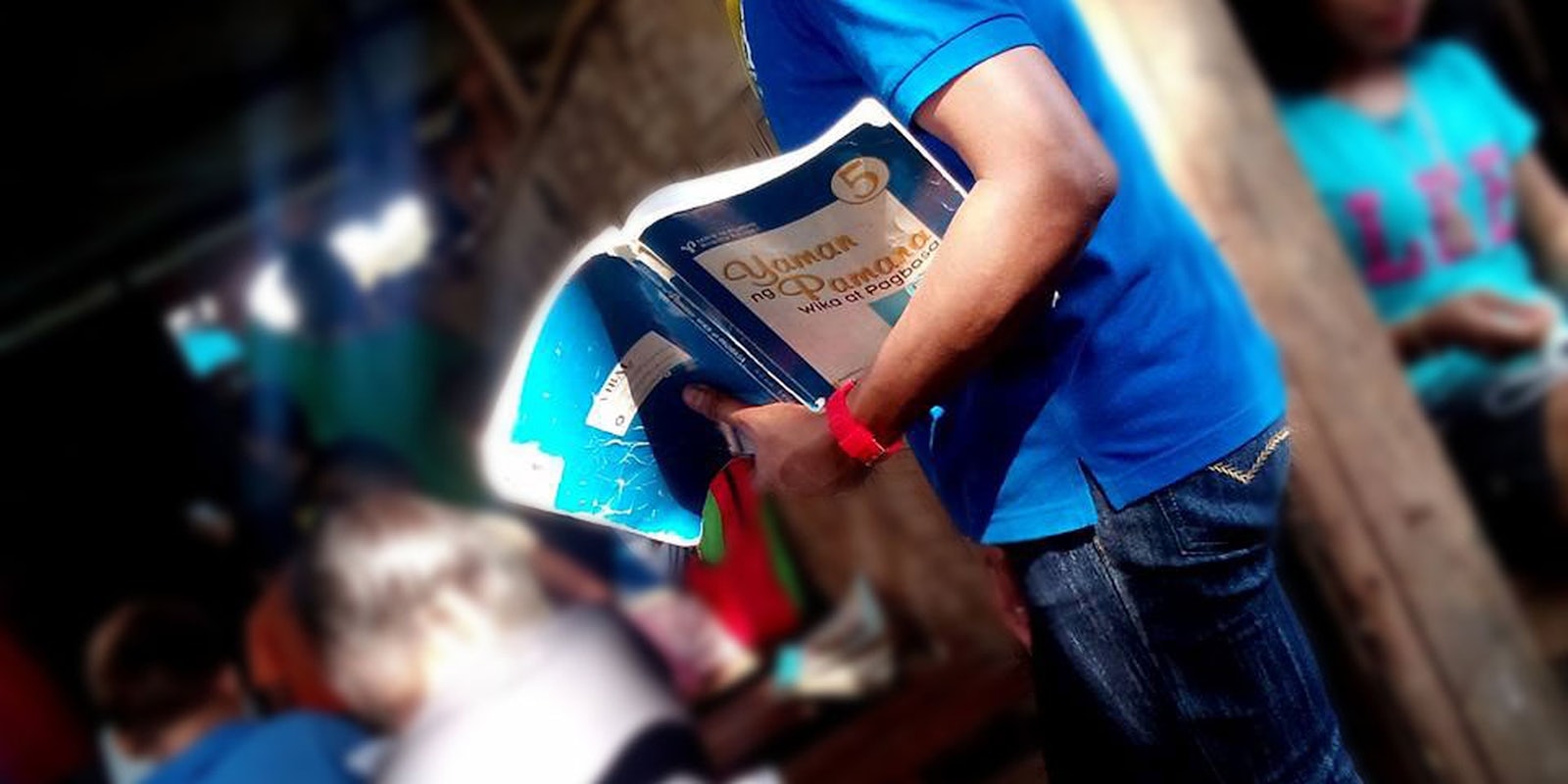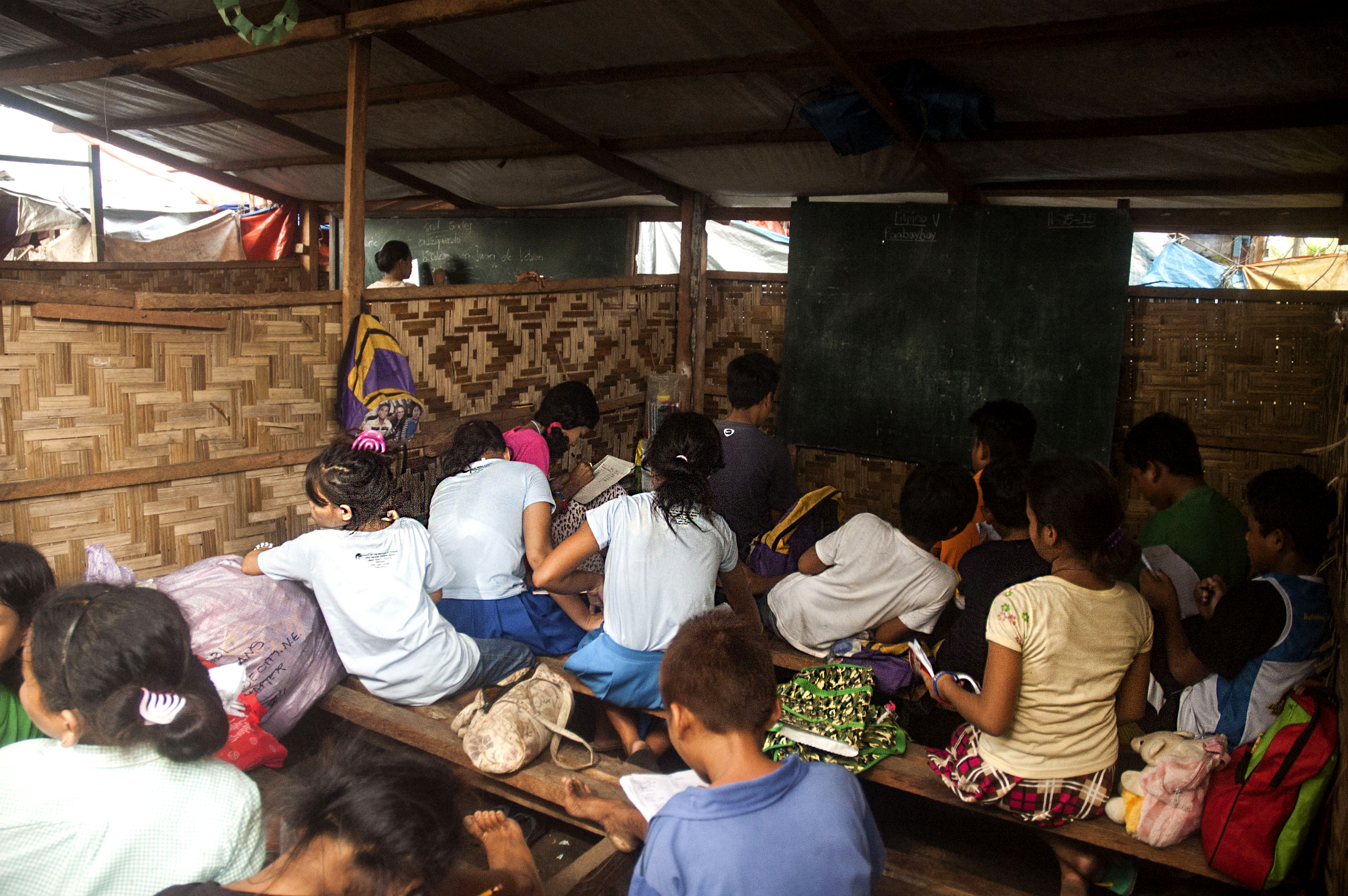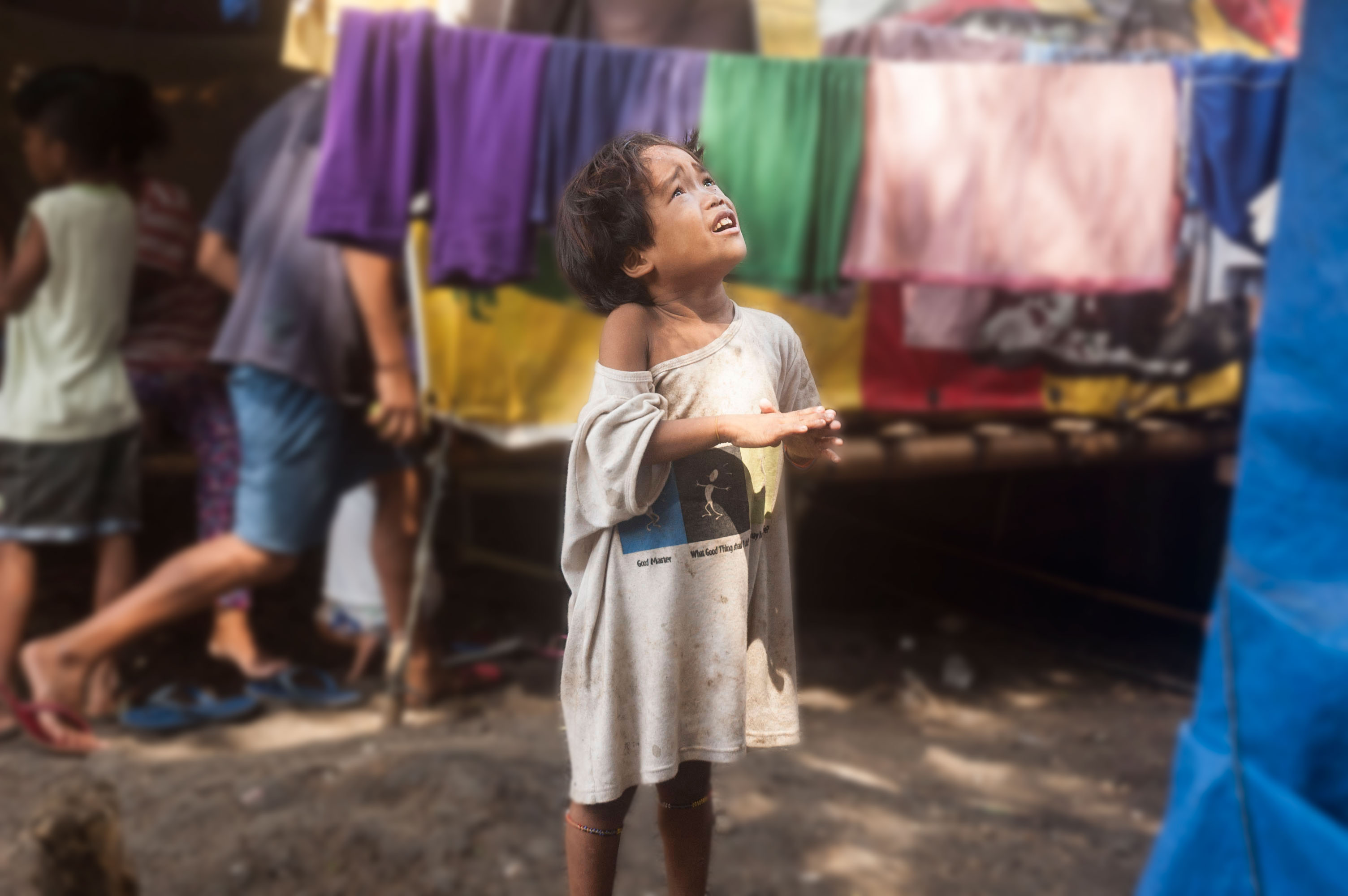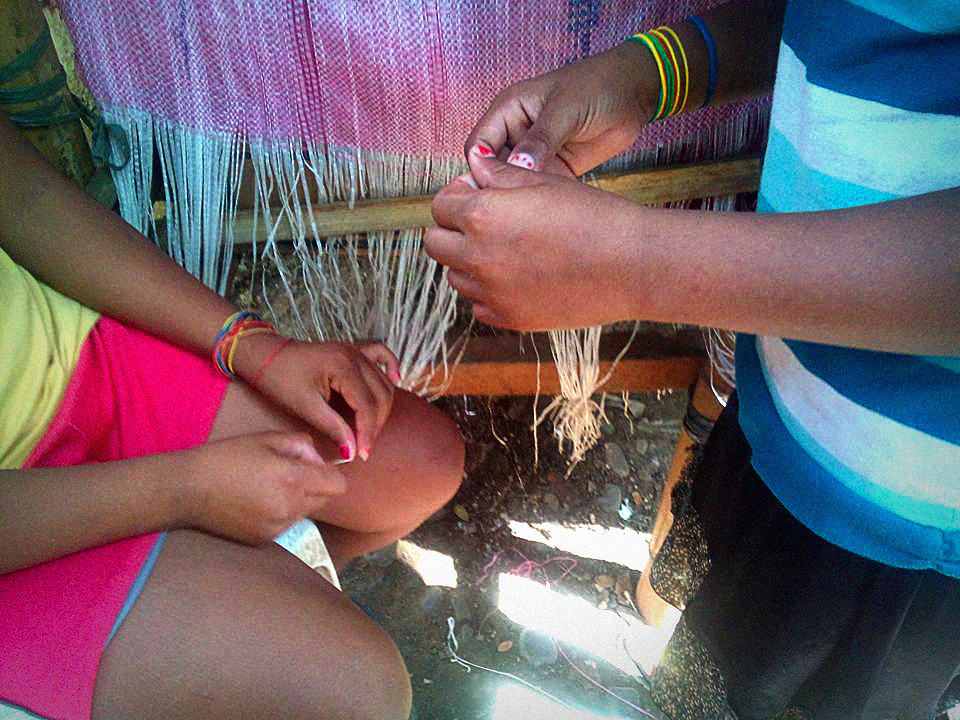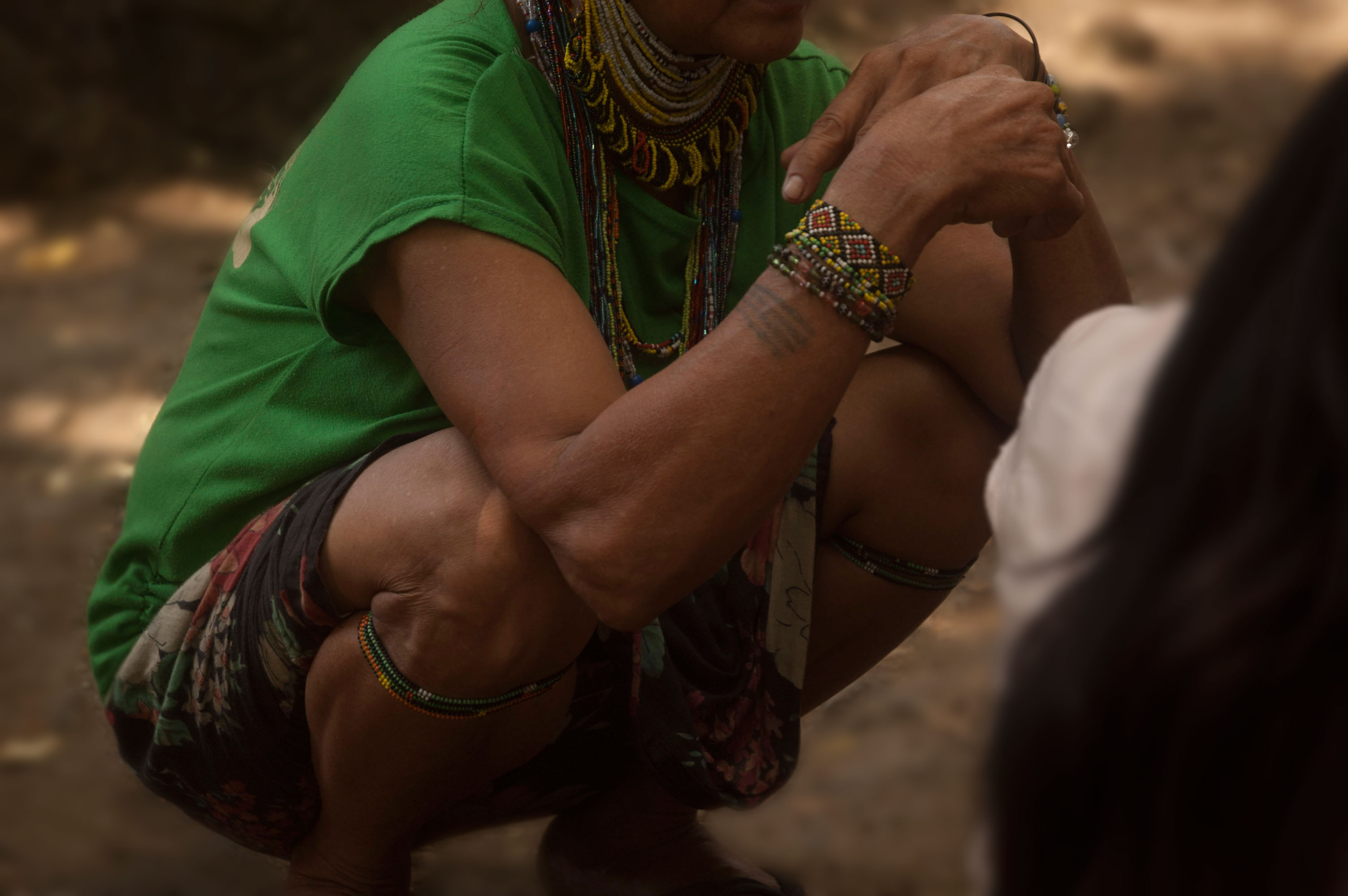Opinion
If you lived in a remote area where you have to walk long hours just to sit in a classroom, where there’s more blood than rainwater, would you still choose to be educated?
The Lumad children in the Philippines did—and we need to start talking about them.
During the 2015 Asia-Pacific Economic Cooperation Summit in November, Teach For All founder and CEO Wendy Kopp said the Philippines still “has a long way to go” in terms of providing education opportunities for children. Kopp’s statement is an understatement. The Philippines lags far behind the United Nation’s Millennium Development Goals on universal education, and the struggles for many of the country’s indigenous people are even more dire.
Under Philippine President Benigno Aquino’s counterinsurgency plan, called Oplan Bayanihan, the Lumads are being pushed out of their own ancestral lands due to the harassment and atrocities caused by the military and government-backed paramilitary group ALAMARA. Philippines has the world’s second largest gold reserve, and the Aquino administration is choosing the operation of these mining companies over the protection of the country’s indigenous people and their ancestral lands. The Armed Forces of the Philippines have turned the country’s ancestral lands into a bloodbath
The Department of Education has issued closure orders on non-governmental organization-run schools in various Lumad communities, accusing it of teaching communist ideology. The army has turned houses and schools into barracks. Teachers and school officials have been threatened and killed. Now, more than 700 Lumads are in a refugee camp in Davao City alone.
Teachers and school officials have been threatened and killed. Now, more than 700 Lumads are in a refugee camp in Davao City alone.
The Philippine government is silencing this plight. But recently, the conflict has found its way to social media. Will you support #StopLumadKillings—a Twitter campaign supported by Anonymous and spurred by a recent march in the Philippines protesting the murder of indigenous people in the area—and call for change? Will you stand up for the children growing up in a battlefield?
Lumad locally translates to “native” and refers to the indigenous people of Mindanao. They reside in the country’s hinterlands, cultivating nature and passing down apologues: Their forefathers said if they go to school, they’ll get eaten by a giant. They passed this belief from generation to generation; some even got tattoos so the giant would recognize them as indigenous people and wouldn’t eat them.
Today, the government and the violence in the area have replaced the giant in that story, forcefully preventing children from obtaining the education they deserve. These kids know the consequences of going to school—that there’s a chance that they won’t come home alive—and their parents’ hearts beat like the drum in a funeral march as they wait for each school day to end.
They have no electricity and no Internet connection. Many of the children said they do not even know what the Internet is.
When these kids are in the classroom, there are few resources to help them learn. They have no electricity and no Internet connection. Many of the children said they do not even know what the Internet is.
I got the chance to sit down with a Salugpongan Ta Tanu Igkanogon Community Learning Center teacher named Charlene. She’s been teaching in the far-flung community of Talaingod for over a year. I asked her what it’s like to teach in such a rural area without the benefits of technology.
“It’s unexplainable but in a positive way. The kids are always excited. They go to school early and don’t mind the long walks. They just want to participate and learn,” she said. “But it does get lonely. The first few days of work I really wanted to cry. The place where I teach is very far, up in the hills. There’s no electricity. But the community is so loving and caring. That eases the loneliness.
“We use solar panels. We do have two computers, but there’s no Internet connection,” she added. “We don’t really think of modern gadgets. For a very long time they were uneducated, we can’t immediately level up things. I focus on the basics like math and reading. Right now, the most important thing is that they won’t be fooled by those buying their crops or trying to govern their lands. Hopefully, in the future, they get to experience modern technology too.”
One teacher I met, a man named Junlie with the Mindanao Interfaith Services Foundation, Inc., ended up being reassigned to teach in the refugee camp.
“I was supposed to teach in Davao Del Norte but MISFI (Mindanao Interfaith Services Foundation, Inc.) received a warning from the indigenous people, saying we shouldn’t go there because the ALAMARA will chop us and mix our mangled bodies with mud, so my assignment got changed,” Junlie said.
Teaching in a refugee camp comes with its own set of challenges.
“Life here is hard. When it rains it’s like a paddy field. When we first got here, our blackboards were full of holes. These that we use are new ones.
And while the students are eager to learn, there are just so many distractions here,” he said.
He went on to describe one particularly horrifying distraction.
“Congresswoman Nancy Catamco from North Cotabato brought some 500-police-plus the ALAMARA and forced the Lumads to go back home,” he recalled. “There was commotion. It was really scary.”
When I asked if their students questioned them about the uproar, the two teachers gave the same answer:
“No, because they’re used to it.”
If the world trembled when we saw the photo of a Syrian child who surrendered to a camera thinking it was a gun, how should we feel that there are children who are so used to war scenarios that they do not flinch anymore?
And yet, these kids still choose to move forward and be educated. Sina, Leni, Sara, and two girls who didn’t want to reveal their names, all ages 8 to 13, shared their thoughts on education with me. Leni said she doesn’t know what school is like without war.
“When I started, the war was already there. I’m now 12 and we still have it. My father died in a stampede. We were running because there was military operation. People accidentally stepped on him,” she said.
Still, Leni wants to get an education. But with so few resources, she and her classmates are at a disadvantage from much of the rest of the world. I asked one of the girls about computers and the Internet.
“We don’t have computers because our schools are in the farm. It’s far. And what’s Internet?” she said.
“We don’t have computers because our schools are in the farm. It’s far. And what’s Internet?” she said.
I asked the girls what they wanted to be when they grow up. No one answered the question. They smiled timidly and told me they don’t know. I’m not sure if it’s because they ended up running away from these dreams or they never got the chance to dream at all. So I just asked if I can get a picture of them.
“No. The military might see it,” one girl told me.
This is not a simple issue we should leave for one country to fix. Children are witnessing brutal death of their parents, women of all ages are being raped, students fear they won’t get the chance to feel what it’s like to graduate. In the Philippines, in Mindanao, extrajudicial killing happens too often it’s easy to mistake it as normalcy.
It is about time the world knows the real story of the Lumads. It’s about time we fight for them because they have been fighting for their rights to be human for the longest time. The Lumad students may be so disconnected to the Internet and the modern world, but we can use the Internet to spread their stories.
Tammy Danan is a freelance journalist based in the Philippines. Part-poet, part-writer, and full-blooded human megaphone of the oppressed, her coverage of refugee camps in the Philippines has appeared in Upworthy.
Photos via Tammy Danan
